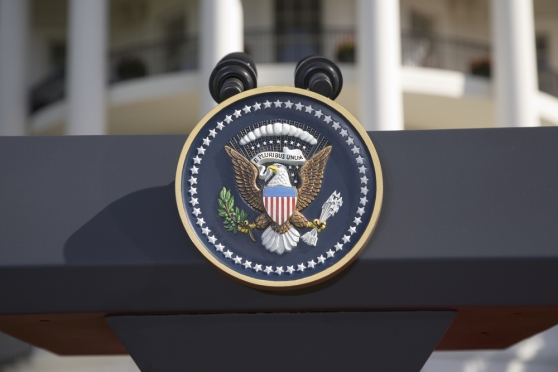
By: Richard Frye | Summer Intern | richard.frye@procopio.com
As we enter the month of July, we near another year’s celebration of our nation’s independence from Britain. Independence Day, like many other holidays and celebrations based on the United States’ identity and history, e.g. Thanksgiving, can carry mixed meanings for Native persons. This article is the first of a three-part series which will look at celebrations, commemorations, and holidays from the at-times conflicting viewpoints inherent to being both Native and American, and reflects on the 250th anniversary commemoration of the City of San Diego held this past April on the Port of San Diego. The next article in the series will look back to the June anniversary of the Battle of the Greasy Grass (Battle of the Little Bighorn) and the last article in the series will discuss the 4th of July.
On April 11, 2019, in a celebration on the Port of San Diego, local leaders kicked off the city’s 250th anniversary commemoration, tracing the region’s “history” back to the arrival of the Spanish at San Diego Bay on April 11, 1769. In addition to the fanfare expected to accompany such an event, such as refreshments and entertainment, speeches were delivered by the Chairwoman of the Jamul Indian Village, Erica Pinto, and the Chairwoman of the Manzanita Band of the Kumeyaay Nation, Angela Rayleene Elliott Santos. Chairwoman Pinto educated the group that Cabrillo’s landing was not the beginning of the region’s history, but rather a significant change in the history that had begun thousands of years earlier. Chairwoman Pinto discussed the series of events beginning at contact with European explorers and colonists and continuing through to today, from the perspective of the indigenous Kumeyaay people. The Kumeyaay, along with other Native American people, have called the greater San Diego region home since time immemorial.
The Chairwomen’s decision to participate in the 250th anniversary came as some leaders of the other federally recognized tribes and bands in San Diego County decided against attending. Pulling no punches in her speech, Chairwoman Pinto described her ancestors’ treatment by the Spanish and the United States federal government as “inferior beings” incapable of self-care. Chairwoman Santos described the system put into place by the first governor of California, which for a period, offered and paid a bounty on the heads of the first peoples of California. Chairwoman Pinto explained the disease, starvation, slaughter, systematic discrimination, rape, enslavement, and destruction of the physical environment suffered by the indigenous people, and delivered an honest and sobering account of the area’s full history.
However, Chairwoman Pinto’s look backward in time to the darker aspects of California history was followed by a determined, optimistic message. In a press release given prior to the event, she imparted a positive message to current-day San Diegans. “You are the people who can give us a presence in this Port. This is something that has been missing for a long time now.” While excusing present-day San Diegans from blame for the atrocities of the past, Chairwoman Pinto stressed the importance of moving forward together with recognition and awareness of the area’s history, in order to make sure that the same never happens again.
A large part of healing wounds, especially those that are deep, involves recognizing the damage through an honest and open dialogue. The Chairwomen’s speeches and presence at the event brought a Native perspective to those who might not have otherwise considered what the area’s history means to its original caretakers. In his recent apology to Native persons throughout California on June 18, 2019, Governor Newsom was brave enough to use the G-word (“genocide”) to honestly describe the treatment of Native Americans in California in the 19th century. In response to Newsom, Chairwoman Pinto said, “It’s healing to hear your words, but actions will speak for themselves and I do look forward to hearing more and seeing more of you.” Ultimately, healing involves more than dialogue and recognition of a shared history, but coming to the same table prepared to create a new tomorrow is a good first step.
 Richard Frye, a member of the Navajo Nation, is a Summer Intern with Procopio in the Native American Law Practice Group. He is a rising third-year student at the UCLA School of Law, where he has served as Co-President of the Native American Law Students Association and will serve as Co-Editor-in-Chief for the Indigenous Peoples’ Journal of Law, Culture and Resistance.
Richard Frye, a member of the Navajo Nation, is a Summer Intern with Procopio in the Native American Law Practice Group. He is a rising third-year student at the UCLA School of Law, where he has served as Co-President of the Native American Law Students Association and will serve as Co-Editor-in-Chief for the Indigenous Peoples’ Journal of Law, Culture and Resistance.

Ted Griswold is head of Procopio’s Native American Law Practice Group and primary editor for the Blogging Circle. Connect with Ted at ted.griswold@procopio.com and 619.515.3277.
 By: Theodore J. Griswold | Partner | ted.griswold@procopio.com
By: Theodore J. Griswold | Partner | ted.griswold@procopio.com


 Richard Frye, a member of the Navajo Nation, is a Summer Intern with Procopio in the Native American Law Practice Group. He is a rising third-year student at the UCLA School of Law, where he has served as Co-President of the Native American Law Students Association and will serve as Co-Editor-in-Chief for the Indigenous Peoples’ Journal of Law, Culture and Resistance.
Richard Frye, a member of the Navajo Nation, is a Summer Intern with Procopio in the Native American Law Practice Group. He is a rising third-year student at the UCLA School of Law, where he has served as Co-President of the Native American Law Students Association and will serve as Co-Editor-in-Chief for the Indigenous Peoples’ Journal of Law, Culture and Resistance.